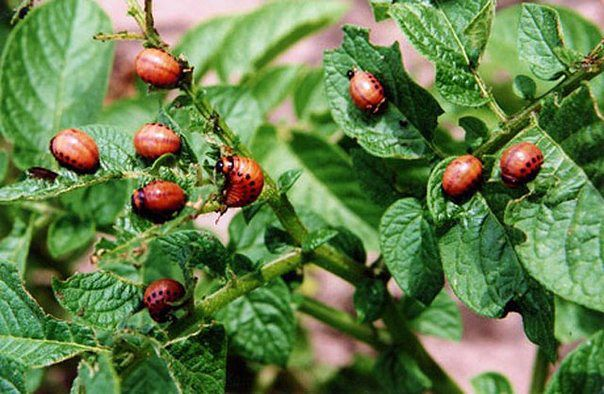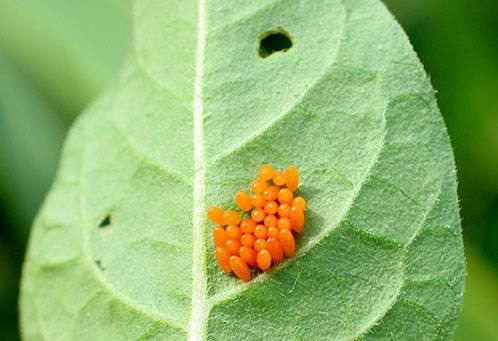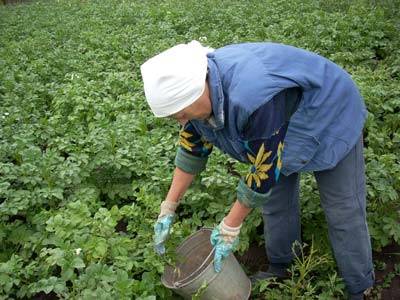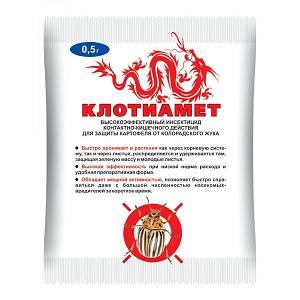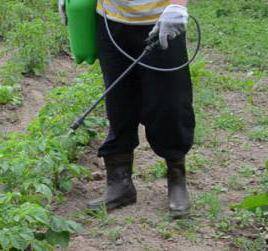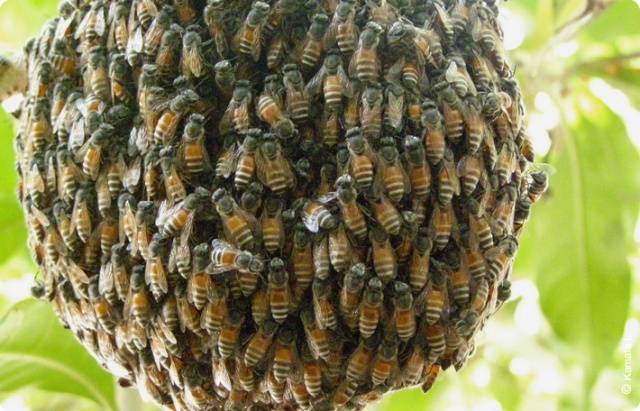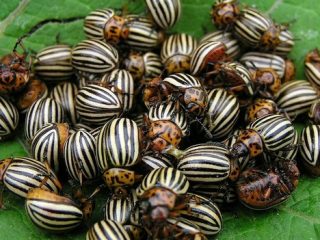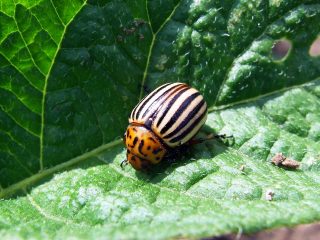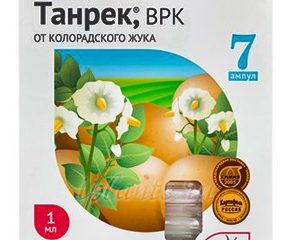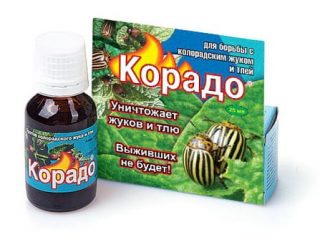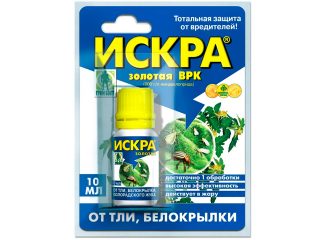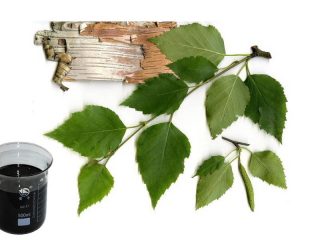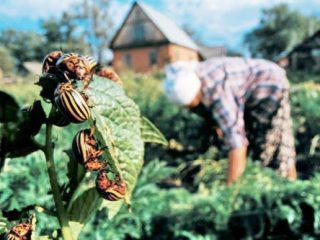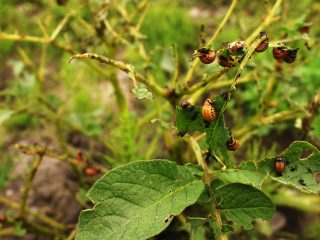Content
Probably, there is no such pest that would cause as much harm to garden crops as the Colorado potato beetle. Eggplants, tomatoes, peppers and especially potatoes suffer from it. With a large accumulation of this pest, potato plantings can be eaten clean in just a week. This "feat" was accomplished by this bug in the United States back in the century before last, leaving the entire state of Colorado without potatoes, which is why it got its name.
The life cycle of a leaf-eating pest
The beetle's life cycle begins in spring, when adults crawl out of the ground after hibernation. Mating occurs immediately, after which the female lays eggs on the inner surface of the leaves.
To do this, you need to carefully examine the bushes and destroy the egg clutches. After about two weeks, and even earlier in hot weather, larvae will hatch from them, which are much more difficult to fight.
The larvae grow quickly and are gluttonous. In order not to lose the harvest, you need to fight with them, like with adult beetles.
Pest control
You can collect these pests by hand, fight them with folk methods, but all these methods are not always effective and require repetition. A radical way is to fight the Colorado potato beetle with insecticides.
Characterization of pesticides
[get_colorado]
There are enough tools that effectively help to cope with this problem. There are several main active substances used for insect control.
- Organochlorine compounds.
- Artificially synthesized pyrethroids, analogs of natural pyrethrin.
- Alkaloids.
- Organometallic compounds.
- Organophosphorus compounds.
Clotiamet from the Colorado potato beetle
It is on the basis of the latest compounds that the Clotiamet drug from the Colorado potato beetle was created, user reviews about it are very good.
Mechanism of action
The main active ingredient of this insecticide is clothianidin. It belongs to the group of neonicotinoids. These drugs are related to all known nicotine, but, unlike it, are much less toxic to humans and mammals. The target of Clotiamet's insecticide is the nervous system of insects. It blocks nerve impulses, causing paralysis and death of insects, including the Colorado potato beetle. The drug acts in three ways at once: contact, through the intestines, getting into all organs and systems of insects.
When processing potato plants, the drug is absorbed not only by the leaves, but also by the roots. The pests eat the leaves treated with the insecticide and die. The drug is effective from the moment of processing, and the death of pests occurs no later than 24 hours. Clotiamet protects potato leaves for about two weeks.
How to apply
Very little preparation is required for processing. If you follow the instructions for use, only 0.5 g of Clotiamet is diluted with 2 liters of water, with which it forms an emulsion. After stirring thoroughly, add another 8 liters of water.This amount is enough to process 2 acres of a potato field. The treatment is carried out using a spray.
Processing can be carried out only once; it should be timed to coincide with the mass colonization of potato plants with beetle larvae. You can go to the treated area after 5 days.
Danger of the drug
Clotiamet is not phytotoxic. For a person, it has a hazard class - 3, that is, the degree of hazard is moderate. The same is true for mammals. For some fish, it can pose a certain danger. Moderately hazardous to birds. For bees and bumblebees, Clotimet is extremely dangerous. It causes the destruction of bee colonies. Because of this, it was even banned for EU application. Compared to the well-known and banned in many countries drug DDT, popularly referred to as dust, the toxicity for bees of drugs based on clothianidin is almost 7000 times higher.
Benefits
- The latest development.
- Does not possess phytotoxicity.
- Fast and sufficiently long-lasting action.
- Compatible with other insecticides and fungicides.
- Low consumption and easy application.
- Low price, about 30 rubles per ampoule.
With proper application and compliance with all personal safety standards, the Clotiamet insecticide is a good option to combat the Colorado potato beetle.
